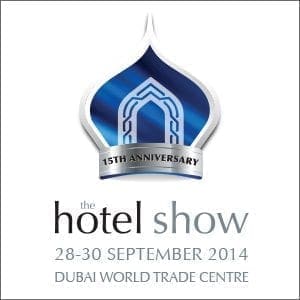Jonathan Segal, CEO & Founder of The ONE Group knows hospitality. The Segal family has been in the industry for over 45 years, running hotels in the UK and Jersey. Jonathan relocated to the USA in 2001 and opened his first venue in 2004 when he founded The ONE Group. It is a high-end hospitality company that develops, manages and operates a portfolio of high-energy restaurants, lounges and bars. The group demonstrated impressive growth in the United States during the recession and has kept on by launching their brands internationally. Within the UK, The ONE Group manage the food and beverage operations at The Hippodrome and ME London.
What was the inspiration behind The ONE Group?
Having worked in hospitality since the age of 15, in both the island of Jersey & the UK, I was keen to explore hospitality opportunities overseas. America was a natural choice having worked in the US before and given that there was no language barrier.
On arrival in New York, I was interested to see if I could take aspects of what we do in hospitality in the UK and adapt some American ways of operating, to create a new and modern hospitality company that challenged traditional expectations and pushed the envelope. America was the perfect place for this, given that the country has a much greater acceptance of new ideas, systems, procedures, styles, technologies, etc.
Ten years after setting up your first venue in the meatpacking district in NYC, The ONE Group has 29 venues operating within two divisions, and can be found in three countries. Is this where you planned to be?
When setting up The ONE Group, it was always my intention to create a global hospitality company. However, as with all things, one starts with the end in mind but the route one ends up taking is not always the route one planned. I always believed that The ONE Group would develop from a private company to a public company but I knew that, in today’s climate & economic environment, to grow that private company and achieve the goals that we had set ourselves would be difficult without either selling a big chunk to a hedge fund or taking the company public.
What do you forecast for the business in the next five years?
The ONE Group has grown tremendously from when it opened its first venue in 2004 & its first STK in September 2006, when annual revenues were $6.3 million. Seven years later, at the end of 2013, the Company’s revenues have increased to $126 million. What is remarkable is that, of the seven years over half the Company’s life expanding was during a recession. In fact, it was the hardest recession we have all experienced in an industry that is the most recession-sensitive. Given what we achieved in such dire circumstances through the economic downturn, I am very confident that in the next five years the businesses will more than double, as we now have a recognized global brand, we are a recognized global hospitality company and, more importantly, we have easier access to capital to help to achieve our expansion goals.
What has your favourite event been in the last 12 months and why?
There is no doubt that the greatest event in the last 12 months was when I won New York Entrepreneur of the Year. This was really important to me for many reasons, most notably that the category was Hotel, Construction & Hospitality which, in New York, is a major category. For me to have won & in that category was, I believe, a tremendous accolade, ?not just for myself ? but for my Company and the team I work with. In addition, another important factor for me was that approximately 15 years earlier, my father was in the same competition in the UK. The only difference being that he was just a finalist and won the category. It took me from the day I started work thirty-seven years ago to get one up on my Dad and, needless to say, I never let him forget it!
What is the most important lesson you’ve learned as an entrepreneur that has helped you get this far?
Without a doubt, the most important thing to be a successful entrepreneur is the ability to see over the wall. Anyone can see the wall but you need vision to see to the other side. Some say that, if you go down the wrong road, at some stage you will have to turn back. I think that may be the overriding differential between an entrepreneur and a manager – the entrepreneur will not turn back but keep on going in the belief that he will get over the wall.













